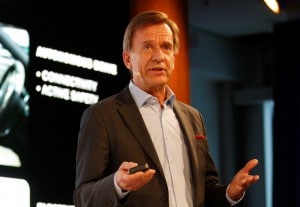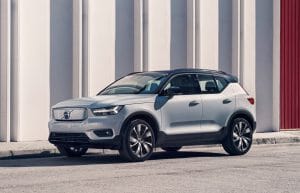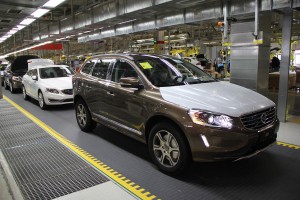
Håkan Samuelsson, Volvo Cars president and CEO, said the company’s first half loss was tied to the global sales slump during the pandemic.
Volvo Cars reported a significant loss for the first half of 2020, an unsurprising result given the impact of the coronavirus pandemic on global vehicle sales.
The company’s operating income dropped 117.9% in the first six months of the year. Additionally, net income fell 134.5%, while revenue dropped 14.1 percent.
Håkan Samuelsson, Volvo’s CEO, said although sales fell in absolute numbers during the first half, Volvo Cars gained market share in China, the U.S. and Europe, where Germany was among the strongest performing markets. Volvo Cars expects its business to recover in the second half of the year, as car markets return to normal, he said.
(Volvo S90 plug-in hybrid tops AAA’s first-ever car guide.)
It also saw a strong increase, 79.8%, in demand for its chargeable plug-in hybrid models sold under the Volvo Recharge brand, while it experienced a strong growth in consumer interest in its online sales channels as well.
He noted Volvo returned to sales growth in China in the second quarter and made up much of the ground lost in the first quarter, as it recorded an overall sales drop of only 3% in the first half.
The US also returned to growth in June, although sales fell by 13.7% year-on-year in the first half, while sales in Europe were 29.5% lower during the six-month period.
(Volvo moves forward with plans to build batteries.)
The overall passenger car market in China declined by 26% in first half, while the U.S. and Europe fell by 24% and 38.1% respectively during the same period.
“The downturn we saw in the first half is a temporary one,” said Samuelsson. “We expect to see a strong recovery in the second half of the year and our Recharge range of electrified cars puts us in a strong position to meet the emerging trends we are seeing.”
Samuelsson noted Volvo temporarily closed down its plants as regions were hit by the pandemic, implemented worktime reduction in Europe with the help of government support and collaborated closely with suppliers to blunt the impact of the pandemic.
(Volvo electrifies across its entire model line.)
“The first half of 2020 has been challenging, for our company and for the wider economy. We were on a successful growth path, we were on course to deliver on our volume ambition – and then the COVID-19 pandemic struck,” he noted.


